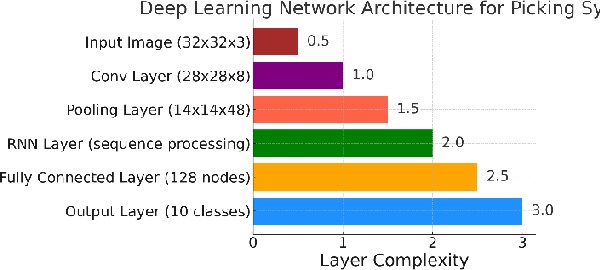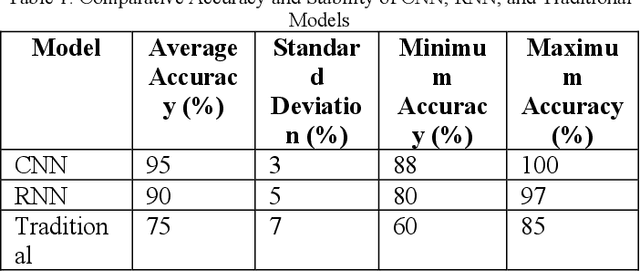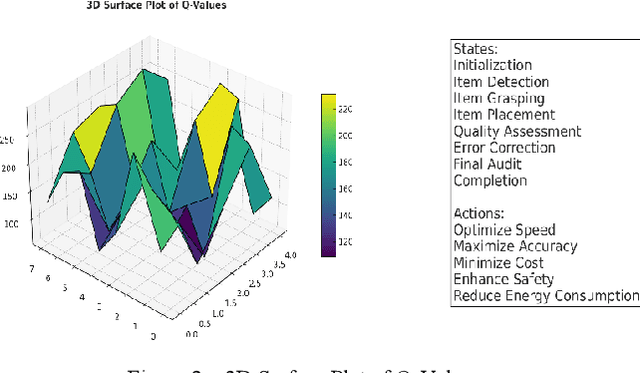Xirui Peng
Optimizing Automated Picking Systems in Warehouse Robots Using Machine Learning
Aug 29, 2024



Abstract:With the rapid growth of global e-commerce, the demand for automation in the logistics industry is increasing. This study focuses on automated picking systems in warehouses, utilizing deep learning and reinforcement learning technologies to enhance picking efficiency and accuracy while reducing system failure rates. Through empirical analysis, we demonstrate the effectiveness of these technologies in improving robot picking performance and adaptability to complex environments. The results show that the integrated machine learning model significantly outperforms traditional methods, effectively addressing the challenges of peak order processing, reducing operational errors, and improving overall logistics efficiency. Additionally, by analyzing environmental factors, this study further optimizes system design to ensure efficient and stable operation under variable conditions. This research not only provides innovative solutions for logistics automation but also offers a theoretical and empirical foundation for future technological development and application.
Automatic News Generation and Fact-Checking System Based on Language Processing
May 17, 2024Abstract:This paper explores an automatic news generation and fact-checking system based on language processing, aimed at enhancing the efficiency and quality of news production while ensuring the authenticity and reliability of the news content. With the rapid development of Natural Language Processing (NLP) and deep learning technologies, automatic news generation systems are capable of extracting key information from massive data and generating well-structured, fluent news articles. Meanwhile, by integrating fact-checking technology, the system can effectively prevent the spread of false news and improve the accuracy and credibility of news. This study details the key technologies involved in automatic news generation and factchecking, including text generation, information extraction, and the application of knowledge graphs, and validates the effectiveness of these technologies through experiments. Additionally, the paper discusses the future development directions of automatic news generation and fact-checking systems, emphasizing the importance of further integration and innovation of technologies. The results show that with continuous technological optimization and practical application, these systems will play an increasingly important role in the future news industry, providing more efficient and reliable news services.
 Add to Chrome
Add to Chrome Add to Firefox
Add to Firefox Add to Edge
Add to Edge